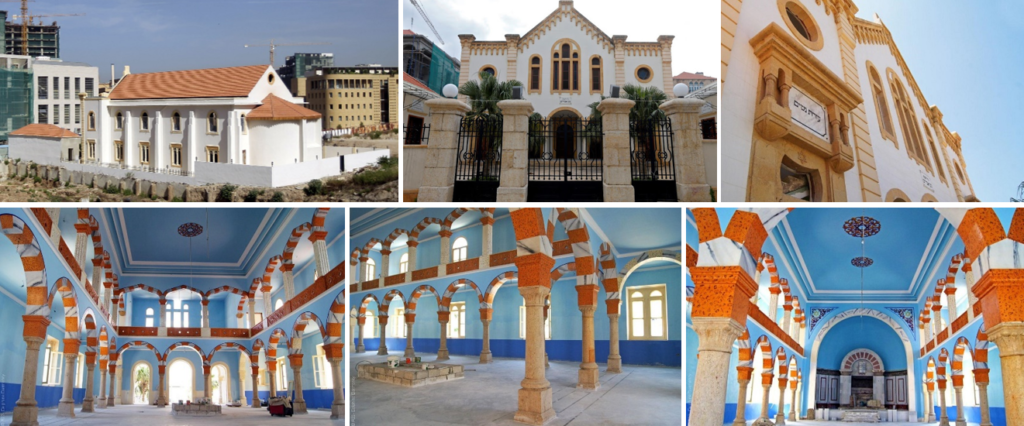
Parashat Ki Thavo (כִּי-תָבוֹא – when you will come), Deuteronomy 26:1-29, 8.
Deuteronomy – 26 – דְּבָרִים
:ה וְעָנִיתָ וְאָמַרְתָּ לִפְנֵי יי אֱלֹקיךָ, אֲרַמִּי אֹבֵד אָבִי, וַיֵּרֶד מִצְרַיְמָה, וַיָּגָר שָׁם בִּמְתֵי מְעָט; וַיְהִי-שָׁם, לְגוֹי גָּדוֹל עָצוּם וָרָב
5 And you will say aloud before the L-rd, your Gd: An Aramean has [wanted] to annihilate my ancestor. He went down to Egypt and resided there in small numbers and there they became a great, mighty and numerous people.1
The Aramean is Laban2 (לבן), brother of Rebecca, father of Leah and Rachel, uncle and father-in-law of Jacob. He is a devious character who deceived Jacob, then pursued him with the intention of destroying him (see Genesis 31, verses 29 and 30).
The name Lebanon comes from the same root LBN (לבן) meaning white, in reference to the snowpack that covers the mountains in winter.
The first signs of Jewish presence in Lebanon date back to 132, following the Bar Kokhba3 revolt against the Roman Empire. In 1920, the Lebanese State was created by France4 following the dismantling of the Ottoman Empire. In 1926, a constitution was adopted. It gives equality and freedom of worship to all Lebanese5. During the Second World War, Lebanon welcomed some Ashkenazi families fleeing the genocide. In 1948, when the State of Israel declared its independence, many Jews fled the belligerent Arab countries (Syria, Iraq, Jordan) and some emigrated to Lebanon. Currently, there are about 4,000 Lebanese Jews, half of whom work abroad, notably in Cyprus and Greece.
The Maghen Abraham Synagogue6 is known to have been the most beautiful in the Middle East. Abandoned and damaged during the Lebanon War (1975-1990), its renovation, undertaken in 2010, was completed in 2019.
1 According to Rashi’s translation and the interpretation of the Sifri, and this is also the version found in the Hagada.
2 לבן הארמי – Lavan (white) ha-arami (the Aramean).
3 Ben Kozevah” (בן כוזבה) or “Ben Koziva” (בן כוזיבא). Thanks to archeology, we know that his name was actually Shimon Bar (or Ben) Koseva (שמעון בר כוסבא or בר כוסבה).
4 Mandate of the League of Nations.
5 Chapter 2 of the Lebanese Constitution (in french):
Article 7 All Lebanese are equal before the law. They also enjoy civil and political rights and are also subject to public offices and duties, without distinction of any kind.
Article 8 Individual liberty is guaranteed and protected. No one may be arrested or detained except in accordance with the provisions of the law. No offense and no penalty can be established except by law.
Article 9 Freedom of conscience is absolute. By paying homage to the Most High, the State respects all faiths and guarantees and protects their free exercise provided that public order is not undermined. It also guarantees to the populations, to whatever rite they belong, respect for their personal status and their religious interests.
6 shield of Abraham